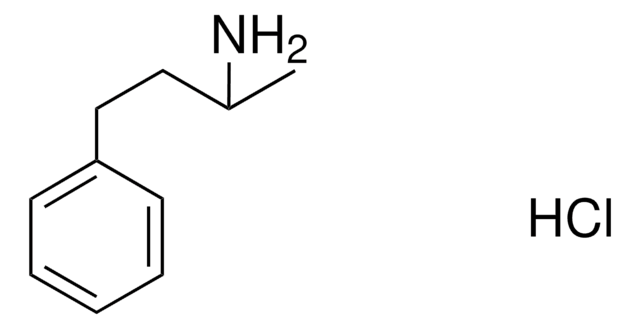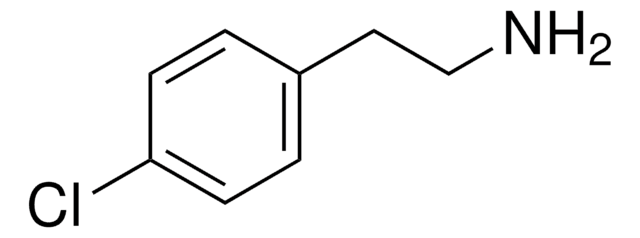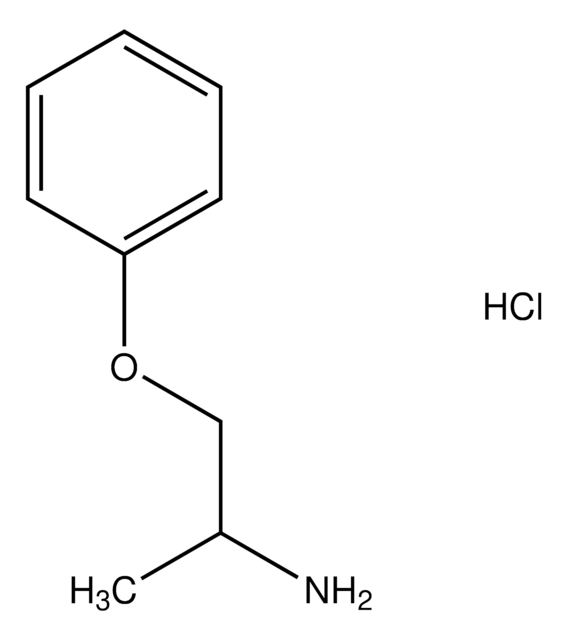M70533
1-Methyl-3-phenylpropylamine
98%
Synonyme(s) :
3-Amino-1-phenylbutane, 4-Phenyl-2-butylamine
About This Item
Produits recommandés
Pureté
98%
Forme
liquid
Indice de réfraction
n20/D 1.514 (lit.)
Point d'ébullition
228-232 °C (lit.)
Densité
0.922 g/mL at 25 °C (lit.)
Chaîne SMILES
CC(N)CCc1ccccc1
InChI
1S/C10H15N/c1-9(11)7-8-10-5-3-2-4-6-10/h2-6,9H,7-8,11H2,1H3
Clé InChI
WECUIGDEWBNQJJ-UHFFFAOYSA-N
Vous recherchez des produits similaires ? Visite Guide de comparaison des produits
Mention d'avertissement
Danger
Mentions de danger
Classification des risques
Acute Tox. 3 Dermal - Acute Tox. 3 Oral - Aquatic Chronic 3 - Eye Dam. 1 - Skin Corr. 1B
Code de la classe de stockage
6.1A - Combustible acute toxic Cat. 1 and 2 / very toxic hazardous materials
Classe de danger pour l'eau (WGK)
WGK 2
Point d'éclair (°F)
208.0 °F
Point d'éclair (°C)
97.78 °C
Équipement de protection individuelle
Faceshields, Gloves, Goggles, type ABEK (EN14387) respirator filter
Certificats d'analyse (COA)
Recherchez un Certificats d'analyse (COA) en saisissant le numéro de lot du produit. Les numéros de lot figurent sur l'étiquette du produit après les mots "Lot" ou "Batch".
Déjà en possession de ce produit ?
Retrouvez la documentation relative aux produits que vous avez récemment achetés dans la Bibliothèque de documents.
Notre équipe de scientifiques dispose d'une expérience dans tous les secteurs de la recherche, notamment en sciences de la vie, science des matériaux, synthèse chimique, chromatographie, analyse et dans de nombreux autres domaines..
Contacter notre Service technique










